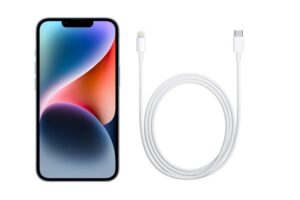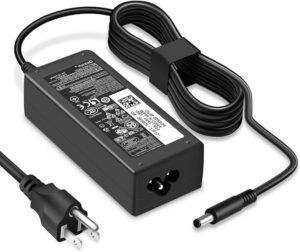Wondering why your charger seems to be draining your battery instead of charging it? Don’t worry, you’re not alone. Many people experience this frustrating issue and are left scratching their heads for answers. But fear not, because in this article, we’ll unravel the mystery behind why your charger might be causing your battery to drain. From faulty cables to incompatible charging ports, we’ll explore the common culprits and offer practical solutions to help you put an end to the unnecessary battery drain. So, if you’ve ever wondered, “Why is my charger draining my battery?” – keep reading, because we’ve got you covered. Let’s dive in and get to the bottom of this puzzling problem.
Why is My Charger Draining My Battery?
In today’s digital age, we heavily rely on our smartphones, tablets, and laptops for various activities. From staying connected with loved ones to managing work tasks, these devices have become an integral part of our lives. To keep our devices fully functional, it’s crucial to have a reliable charger. However, there can be instances when using a charger actually drains the battery instead of charging it. This can be frustrating and may leave you wondering about the root cause behind this unexpected behavior.
In this article, we’ll explore the various reasons why your charger might be draining your battery and provide some practical solutions to overcome this issue. So, let’s dive right in and uncover the mysteries behind this charging conundrum!
Faulty Charging Cable
One of the primary culprits behind a charger draining your battery is a faulty charging cable. Over time, charging cables can become damaged due to regular wear and tear. Frayed wires, loose connections, or internal damages can disrupt the charging process and lead to energy loss instead of replenishment.
To check if your charging cable is the issue, try using a different cable with the same charger. If the battery charges properly, it confirms that the original charging cable was indeed faulty. In this case, replacing the damaged cable with a new one will likely resolve the draining issue.
Incompatible Charger
Using an incompatible charger is another common reason for battery drainage. Each device comes with specific charging requirements, including voltage and current output. Using a charger that doesn’t meet these requirements can interfere with the charging process and potentially drain your battery.
To ensure compatibility, always use the charger provided by the device manufacturer or a reputable third-party charger that is explicitly designed for your device. Using the wrong charger can not only drain your battery but also pose a safety risk due to potential overcharging or overheating.
Background Apps and Processes
While it’s easy to blame the charger itself, sometimes the culprit behind battery drainage lies within the device’s software. Background apps and processes can consume a significant amount of power, especially when they run unnecessarily or excessively.
To identify power-hungry apps, navigate to your device’s battery usage settings. This feature provides insights into which apps are consuming the most battery power. Close any unnecessary apps or processes running in the background to conserve battery life and prevent draining while charging.
Overheating and Thermal Regulation
Overheating can also contribute to your charger draining the battery. When your device or charger becomes too hot, the internal thermal regulation mechanisms kick in to ensure the safety of your device. As a protective measure, the charging process may slow down or even pause, leading to slower battery replenishment or complete draining.
To prevent overheating, make sure to use your device and charger in a well-ventilated area. Avoid charging your device on soft surfaces like beds or couches, as this can inhibit proper airflow and heat dissipation. Additionally, remove any protective cases or covers during charging, as they can trap heat and worsen the overheating issue.
Power Source and Voltage Fluctuations
The power source itself can play a significant role in battery drainage during charging. In regions with unstable or fluctuating electrical supply, voltage irregularities can occur. These fluctuations can disrupt the charging process and cause battery drain instead of replenishment.
Consider using a surge protector or a voltage regulator to stabilize the power supply and protect your device from voltage spikes. It’s also a good idea to try charging your device from a different power outlet or even using a different power source altogether, such as a laptop USB port, to rule out any issues with the original power source.
Charging Port Issues
Sometimes, the issue may not lie with the charger itself but rather with the device’s charging port. Dust, lint, or debris may accumulate in the charging port, preventing proper contact between the charger and the device. This can result in erratic charging behavior, including draining the battery.
Inspect the charging port and clean it gently using compressed air, a soft brush, or cotton swabs. Be careful not to damage the port in the process. Regularly cleaning the charging port can help maintain proper charging efficiency and prevent battery drainage caused by poor connections.
Defective Battery
In rare cases, a defective or failing battery can be the underlying cause of your charger draining the battery. Over time, batteries degrade, leading to reduced capacity and potential charging issues. If none of the previously mentioned solutions resolve the problem, it may be worth considering a battery replacement.
Contact the device manufacturer or seek professional assistance to assess and replace the battery if necessary. It’s important to note that replacing the battery should only be done by authorized technicians to ensure safety and proper functionality.
Discovering that your charger is draining your battery instead of charging it can be frustrating. However, by understanding the potential causes behind this issue, you can take the necessary steps to troubleshoot and resolve the problem.
Remember to check your charging cable for faults, use compatible chargers, close unnecessary background apps, prevent overheating, stabilize the power source, clean the charging port, and consider battery replacement if needed. By addressing these aspects, you can optimize the charging process and ensure your battery stays charged when you need it the most.
By following these guidelines and implementing the suggested solutions, you can bid farewell to the days of the mysterious charger drain and enjoy uninterrupted device usage without worrying about battery depletion.
How to Fix iPhone Battery Draining While Charging
Frequently Asked Questions
Why does my charger drain my battery?
When your charger drains your battery instead of charging it, it can be frustrating and inconvenient. Several factors may contribute to this issue:
1. Is the charger compatible with your device?
Not all chargers are designed to work with every device. Ensure that the charger you’re using is compatible with your specific device. Different devices may require different voltage or amperage ratings, and using an incompatible charger can lead to battery drainage.
2. Is the charger in good condition?
Inspect the charger for any physical damage or wear. Frayed or damaged cables, loose connections, or bent pins can interfere with proper charging and cause battery drainage. If you notice any issues, consider replacing the charger.
3. Are you using a fast charger?
While fast chargers may charge your device quickly, they can also generate more heat, which can impact battery life. If you’re using a fast charger, try switching to a standard charger and see if the battery drainage issue persists.
4. Are there any background apps or processes consuming power?
Certain apps or background processes can drain your battery even when charging. Check for any apps that are actively running or consuming a significant amount of power. Closing unnecessary apps or disabling power-hungry features can help prevent battery drainage.
5. Is your device charging properly?
Make sure your device is receiving a stable and consistent charge. Try using a different charging cable or wall adapter to rule out any issues with the charging equipment. Additionally, clean the charging port of your device to remove any dirt or debris that may be interfering with the connection.
6. Does your battery need calibration?
In some cases, a battery may need to be calibrated to accurately display its charge level. Look up the calibration process specific to your device model and follow the instructions provided by the manufacturer. Calibrating the battery can help resolve inaccuracies and prevent unexpected drainage.
Final Thoughts
In conclusion, the issue of a charger draining your battery can be attributed to several factors. Firstly, using a low-quality or incompatible charger can overload your device and cause excessive power consumption. Secondly, leaving your charger plugged in can result in “vampire drain,” where the charger continues to draw power even when not actively charging. Additionally, faulty charging cables or connectors can lead to inefficient charging and a draining battery. To prevent this issue, always use a charger compatible with your device, unplug it when not in use, and regularly check for any damaged cables. By addressing these factors, you can prevent your charger from draining your battery unnecessarily.



